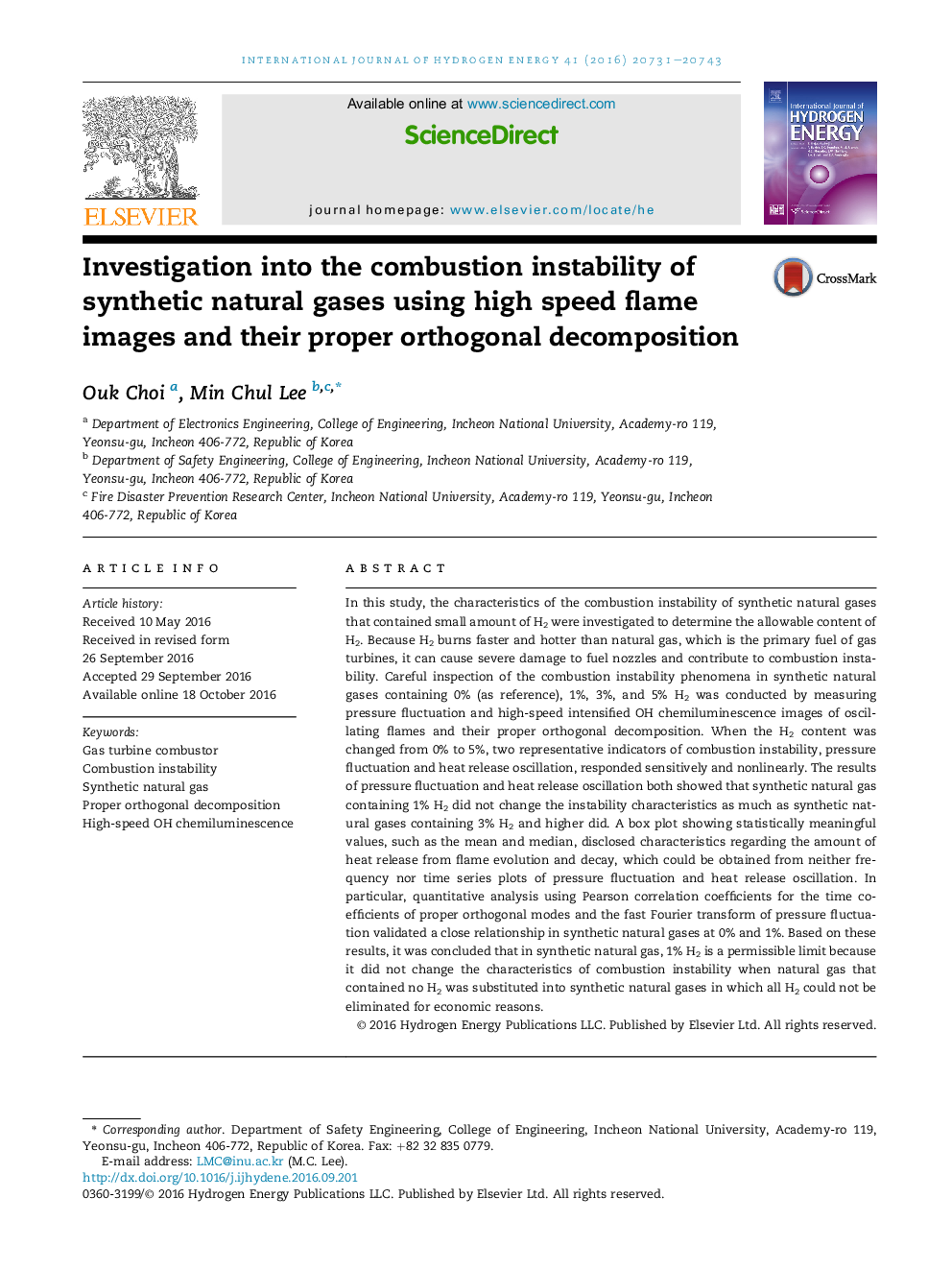| Article ID | Journal | Published Year | Pages | File Type |
|---|---|---|---|---|
| 5148166 | International Journal of Hydrogen Energy | 2016 | 13 Pages |
Abstract
In this study, the characteristics of the combustion instability of synthetic natural gases that contained small amount of H2 were investigated to determine the allowable content of H2. Because H2 burns faster and hotter than natural gas, which is the primary fuel of gas turbines, it can cause severe damage to fuel nozzles and contribute to combustion instability. Careful inspection of the combustion instability phenomena in synthetic natural gases containing 0% (as reference), 1%, 3%, and 5% H2 was conducted by measuring pressure fluctuation and high-speed intensified OH chemiluminescence images of oscillating flames and their proper orthogonal decomposition. When the H2 content was changed from 0% to 5%, two representative indicators of combustion instability, pressure fluctuation and heat release oscillation, responded sensitively and nonlinearly. The results of pressure fluctuation and heat release oscillation both showed that synthetic natural gas containing 1% H2 did not change the instability characteristics as much as synthetic natural gases containing 3% H2 and higher did. A box plot showing statistically meaningful values, such as the mean and median, disclosed characteristics regarding the amount of heat release from flame evolution and decay, which could be obtained from neither frequency nor time series plots of pressure fluctuation and heat release oscillation. In particular, quantitative analysis using Pearson correlation coefficients for the time coefficients of proper orthogonal modes and the fast Fourier transform of pressure fluctuation validated a close relationship in synthetic natural gases at 0% and 1%. Based on these results, it was concluded that in synthetic natural gas, 1% H2 is a permissible limit because it did not change the characteristics of combustion instability when natural gas that contained no H2 was substituted into synthetic natural gases in which all H2 could not be eliminated for economic reasons.
Keywords
Related Topics
Physical Sciences and Engineering
Chemistry
Electrochemistry
Authors
Ouk Choi, Min Chul Lee,
